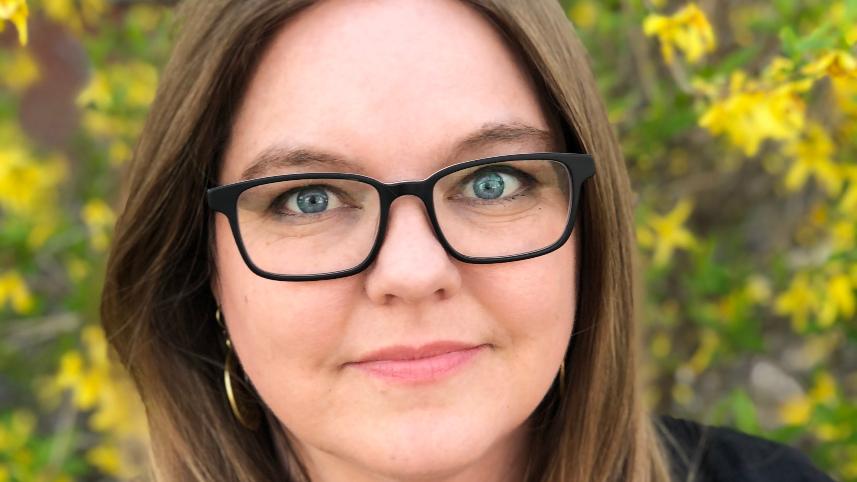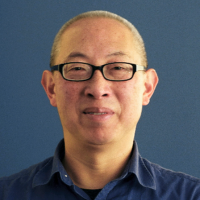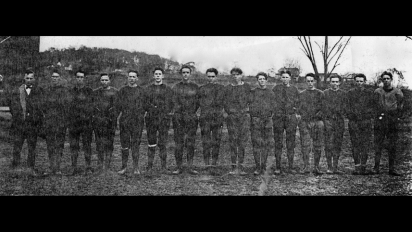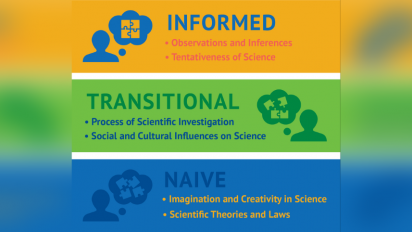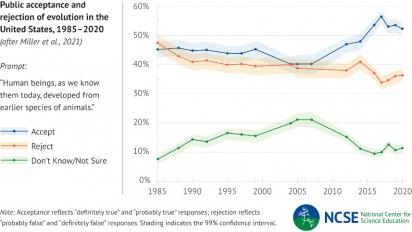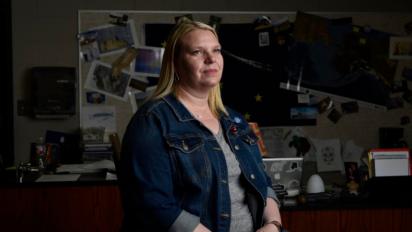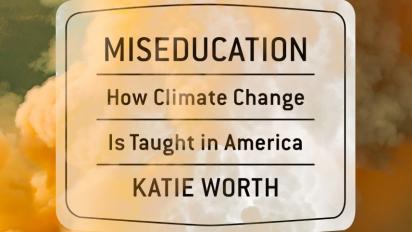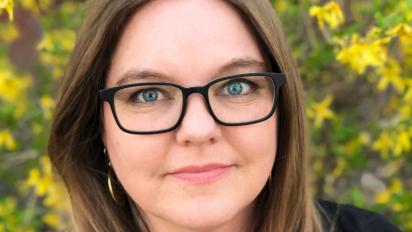KW: Every year she comes in and gives a presentation about gas and oil to the seventh-graders. Some of it’s really legit. Like, “This is where geology predicts that oil and gas exist, and this is the technology we use to pull it out.” But there were parts that were about the environmental impact of fossil fuels, and there she really, really downplayed climate change. She said briefly that the problem with fossil fuels is greenhouse gases. She didn’t describe what those were. She then immediately said, “But you’re going to find a problem with any kind of fuel. Windmills kill birds. Solar panels don’t produce when it’s cloudy. Dams do damage to rivers. So anything you choose is going to be problematic.” Equating climate change with birds killed by windmills. Not to minimize the deaths of birds by windmills, but it’s a completely different scale of problem. And of course, as many as two thirds of American bird species could be extinguished by climate change this century. So it’s a false equivalency. But these seventh-graders don’t know that. The teacher was deferential, the students were deferential. The only question I heard them ask was how much they would make if they worked in the industry. That was a very vivid example of how fossil fuel messages get into classrooms. This woman’s job is to go from classroom to classroom across the state of Arkansas pushing the messages of the industry. I definitely knew there were a lot of fossil fuel industry messages and curricula out there. But I had never witnessed a presentation to kids that was so blatantly climate-change-minizming. I was not expecting it.
PO: I found it especially chilling that fossil fuel groups exploit the fact that districts, schools, and teachers are often scrambling for resources and so may be willing to accept questionable curricular materials.
KW: I talked to one teacher who was like, “I barely have time in the day to pee. So if somebody sends me or if I run across something that looks professionally done, some lesson plan or curricula that’s already created for me and it looks good and it looks like the kids will be into it, maybe I use it.” It’s hard to blame the teachers. They’re really doing the best they can. And of course they can fall victim to these campaigns that are preying on them.
PO: You talked to a number of teachers and you got them to open up about their experiences. (See Random Samples with Melissa Lau for an interview with one of these teachers.) You even were invited to witness their conversations with students about climate science. What was that like?
KW: It was really a privilege to hear the stories of what happens in these classrooms and how teachers navigate this pretty tricky situation. It’s not tricky for every teacher. There are some teachers who are teaching in a community where climate change is broadly accepted and there’s no drama whatsoever. But in a lot of this country, that’s not true. They bring up the words “climate change” or “global warming” and the only time their students had ever heard them before was along with the words “it’s a hoax.” So how do you teach through that and teach the actual data and persuade students to think critically when they’re hearing a very political and false message about climate change in other parts of their lives? I have so much respect for teachers. So many of them are so thoughtful about how they teach and prioritize their relationship with students. I don’t think I came across any teacher who was super-dogmatic. And I think that’s good because I don’t think that’s necessarily how you get through to someone who is being taught other things. Probably every science educator in the country has an interesting story to tell about teaching climate change.
PO: The interaction between Marc Kessler and Nakowa towards the end of your book is so heartbreaking because Kessler — who’s teaching in a former hardware store, since the 2018 Camp Fire forced his school to relocate — does everything right. And yet in the end his student, Nakowa, still questions whether climate change is even happening.
KW: Nakowa raised his hand and said, “My parents told me not to talk back to the teacher, but I don’t know what to believe. My parents told me climate change is not true. But then I come in here and I hear that NASA is saying it’s true. And I just don’t know who to believe.” He was really having this soul-searching, confused moment. And Mr. Kessler handled it beautifully. He said, “I’m not trying to tell you what to think. I’m just trying to give you the best data I can and teach you how to think about it and let you draw your own conclusions.” So Nakowa seemed to accept that in the moment. But then later, Mr. Kessler gave a writing prompt to the students and Nakowa wrote, “I don’t think climate change has affected my life at all yet” — even though his house had burned down five months earlier in the Camp Fire — and “I don’t know if it will affect my life in the future because I don’t know if I believe it yet.” It was just stunning to see that even after he’s already been deeply impacted by climate change.
PO: In the face of all that you encountered researching your book, what gives you hope about climate change education? And what do you hope the impact of your book will be?
KW: I hope that the book makes people demand better education for their children and our schools. I hope that it shines light on the messages that come from moneyed interests that appear in schools and in textbooks. In one sense, this issue is really niche — it’s about climate education, which is just a very small sliver of both education and climate. But it’s really essential. That’s why moneyed interests have put so much effort into it because it really will influence what kids think about this issue for decades. And that will be the difference between a world where aggressive action is taken to slow the climate crisis and one where it’s just a free-for-all and we see what happens.
This version might differ slightly from the print publication.


